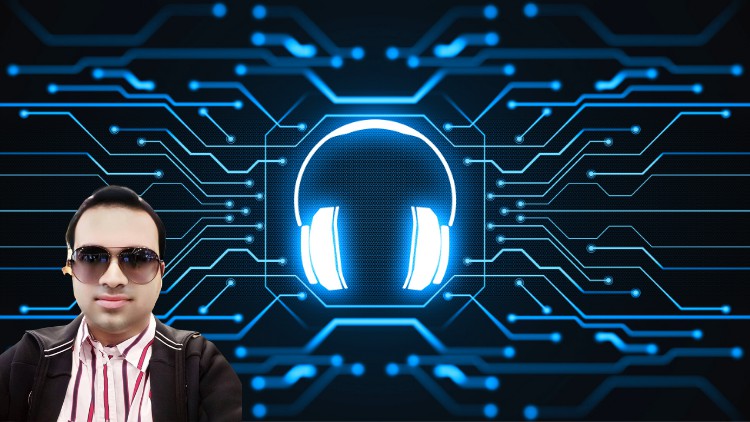
Learn to make audio-powered rooms for hosting events to market your brand 24×7 by learning this mind-blowing course.
What you will learn
Learn about a platform to create and host audio-powered events
Learn about setting up a payment gateway or similar kind of methodology that allows to route visitors to the audio-event after they have paid
Know how to pre-record an audio event and set it to play live at the required time without any requirement of human intervention using a powerful tool
Know about the technology platform that allows you to create your own branded audio-based rooms to use for your website
Learn about a superb platform that will help you to upload and monetise the recorded audio after the event is completed
Description
Someone said that the Future of Social Media is “All Talk” and nothing more – back in the year 2016.
He or she who thought about this true fact is absolutely right. Audio-based social media stepped up to the plate in response to a pandemic-induced demand for genuine connection while avoiding screen weariness this year. Experts say that while Android OS will help companies to grow, developing a creator community will be crucial. This is what the top companies in the world has been concentrating on recently.
Clubhouse, like any other social media platform has the potential to be a double-edged sword. Either way, you’ll either waste time bouncing in and out of different conversations or you’ll be able to make relationships with individuals all over the world.
Clubhouse is clearly gaining popularity in the face of intense competition from Twitter Spaces and other digital heavyweights such as LinkedIn, Facebook, Spotify, and Reddit, all of whom are developing Clubhouse-like platforms.
The biggest question that will come to your mind – Is there a future for audio after the epidemic, or will it fade out once we can converse and listen in person? The answer can already be found in the first sentence.
Audio social media systems appear to fulfil a long-held goal for free and democratic social media. Decentralisation offers a wide range of applications, from cryptocurrency to social media. Unlike podcasts or livestreams, social audio platforms are more of an open conversation than a monologue. Even if you’re in a chatroom full of strangers, group voice chats feel strangely intimate. Audio social media platforms allow users a more democratic option to get their opinion heard in a world where platforms are becoming pay-to-play.
Brands may be able to test audio-based ad formats on audio social networks at some point in the future. They would also be able to “sponsor” particular discussions, similar to how adverts appear on streaming radio and podcasts. Individual chat rooms would most likely have audio advertising — a company representative or host would provide a short commercial at the start, middle, and/or end of a conversation. Social audio platforms tend to draw niche audiences, ranging from astrology enthusiasts to side hustlers, providing the ideal opportunity for companies to get in front of their target audience in an audio format.
Accessibility is critical to the development of social media. Some apps or software as we know it are inaccessible to persons who are deaf or hard of hearing due to their audio-only nature. Discord has added certain accessibility features, including text-to-speech and greater screen-reader integration, in response to similar criticisms. Audio platforms must ensure that their platform is accessible to everyone in order to survive.
One way audio platforms keep users interested is through attracting influencers and celebrities who funnel their audience from other media. Allowing live talks to be recorded and distributed in a podcast format may also assist platforms attract listeners who are unable to attend live chats. Keep that in mind.
Now, let’s talk about how “Space Render Classic Edition: Create Live Audio Rooms” course made by Digital Marketing Legend “Srinidhi Ranganathan” fits here and is deemed to be world-changing.
In this mind-blowing course, we will look at hosting audio-based events from a marketers’ point of view to promote himself or herself via a web-portal. Imagine marketing yourself on a browser instead of a mobile app. This seems to be something like Clubhouse for web. Once we’ve gone through the web portal, we will look at how you can post recorded events and make it seemingly live for the audience who pay a ticket to enter the show. Isn’t this amazing? This is sheer monetisation opportunity – we’re talking about.
What’s more? We will also look at certain platforms that allow you to embed a club-house like audio rooms on your own website. In the special lecture, we will be exploring a tool that allows you to share the recordings as a podcast and monetise them, also.
Why wait? We advise you to try out the social audio platforms taught in the course, keep an ear out for advertising opportunities, and start thinking about how to engage with your audiences or fans in an audible way – whatsoever.
1….2….3…..Enroll Now. Let’s start booming.
